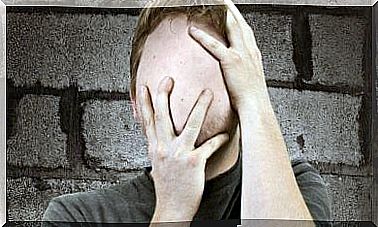Temporary Employment Causes As Much Anxiety As Unemployment

Just as there are individual psychological factors that disrupt life in society, there are also social factors that affect people’s mental health. One study revealed that the psychological consequences of temporary employment are very similar to those caused by unemployment.
The study was conducted by the Australian National University (ANU) and published in the journal Psychological Medicine. Their conclusions clearly indicate that temporary employment significantly increases the risk of suffering from depression and anxiety, as occurs with those who do not have a job.
The data is worrying if one takes into account that the number of people who have temporary employment has been growing throughout the world, while the number of those who have formal jobs has decreased. This means that the issue is no longer just a matter of individual competence, but is causing a collective impact.

Temporary employment and its consequences
Professor Joan Benach, from Pompeu Fabra University, has pointed out that temporary employment severely affects people, even more than unemployment itself. This is mainly due to the fact that the temporary worker basically cannot claim their rights , due to the state of insecurity and vulnerability in which they find themselves.
Something similar is the opinion of Professor Josep Maria Blanch, from the Autonomous University of Barcelona, who points out that the unemployed are certain that they are going through a bad time. Meanwhile, those who have a temporary job live a prisoner of uncertainty, because they are always faced with the risk of being in a more precarious situation than they are.
That uncertainty is a breeding ground for anxiety. This is increased by the tension of tolerating a work situation in which the only alternative is to accept the working conditions, even if they do not share them, or they are clearly harmful, or to stop working. Then advance over a gorge.
Life in parentheses
One of the serious effects of temporary work is the inability to project life. A person who works under these conditions does not know if he will have an income next month or not. He also does not know if after the end of his contract he will be able to get a new job or will have to be unemployed for an indefinite period.
For this reason, he refrains from making important decisions in his life such as getting married, starting a new career, having a child or simply going on vacation. All this is suspended indefinitely, as economic uncertainty requires it.
In a study by the Autonomous University of Barcelona, it was found that, when comparing the unemployed, those who have a voluntary temporary occupation and those who work temporarily because they find no other option, the latter showed more signs of psychological deterioration.
Walk the tightrope
Temporary workers have also been found to have a stronger sense of injustice and discrimination. They also have higher levels of anxiety, depression, and resentment. Likewise, greater tension, since their identity is continually compromised: today they work as cartoonists and tomorrow as pizza delivery people.
All this together makes people in these conditions more likely to become physically ill. Stress generates multiple effects on the body and easily causes physical deterioration as a consequence.
Recently, Dr. Dainius Pūras, the UN’s chief health spokesperson, pointed out that social justice is more decisive for good mental health than even psychotherapy or the use of medication. He added that just societies are the best “vaccine” against mental illness.

To do?
While it is true that individually we cannot change those macrostructures that determine these forms of employment, it is also true that each one can contribute to reducing the effect. It is important that we individually take the necessary measures to protect ourselves from this situation.
It is convenient for each person to seek and find a way to generate an independent or associated business with people in the same condition. No matter how modest or small, it is an alternative that, if cultivated and maintained, will provide greater emotional and material security.
Likewise, it is advisable to make smart use of savings. It is a habit that is worth cultivating and that by internalizing it protects us from useless consumerism and provides us with support. Finally, from the collective point of view, it is important to participate in spaces that promote social change. The vote is one of them, as well as the spaces for reflection and organization.









